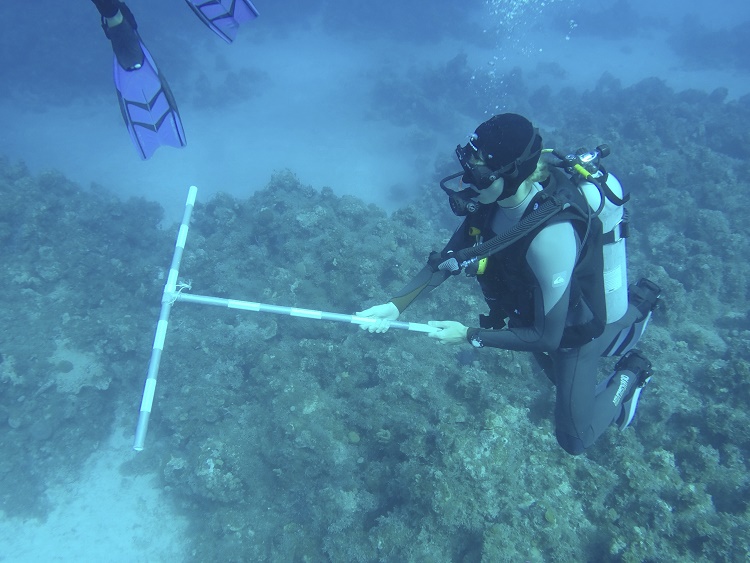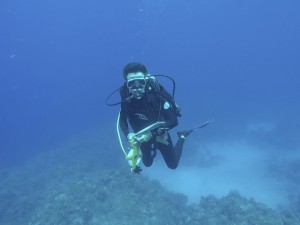The following is an excerpt from an update by Island School student Patrick Henderson, talking about his Research Class, Fish Assessment:
The School Research Class Reef Assessment team has been very busy already this semester. We meet at least 3 times a week and dive during 2 of these sessions. Our goal is to conduct an up-to-date assessment of the current status of commercially important fish in South Eleuthera. The data we collect will be compared to previous studies from 2009 in order to identify if there are any trends that show an increase or decline in fish density and biomass. Our goal is to provide unbiased data that could help inform future potential marine resource management strategies.
In class we hold discussions about scientific readings we have completed for homework assignments. In these discussions we question how the readings apply to our project, the subject/purpose of the reading, and how we can actively apply what we have learned from the readings in our research.

Our first week was spent primarily learning fish identification. This consisted of presentations about fish biology, body forms, markings, families, and species all to ensure that on our surveys we could accurately and correctly identify any fish that we came across. These presentations were followed by fish point-out dives.
After we got a handle on identification we turned our focus to size estimates underwater. We worked in the classroom and underwater ensuring that every member could correctly estimate fish sizes and counts on dives.

We then began practice surveys using The Atlantic and Gulf Rapid Reef Assessment (AGRRA) Program fish protocols. This consisted of classroom work as well as going out and practicing on actual reefs. Each team member had to learn the different jobs that must be completed on a survey as well as the possible risks/problems that can arise if the protocols are ignored.
This past Wednesday the team went diving on a fore reef at 60ft. Accompanying us on this dive were 3 divemasters who monitored our survey and ensured our safety. Each dive consists of 3 teams of 2 students; the students take turns practicing each role. One student counts fish during the survey, while the other holds the tape measurer ensuring the Assessment follows AGGRA protocol. Soon we should be able to begin conducting actual assessments on reefs surrounding South Eleuthera.